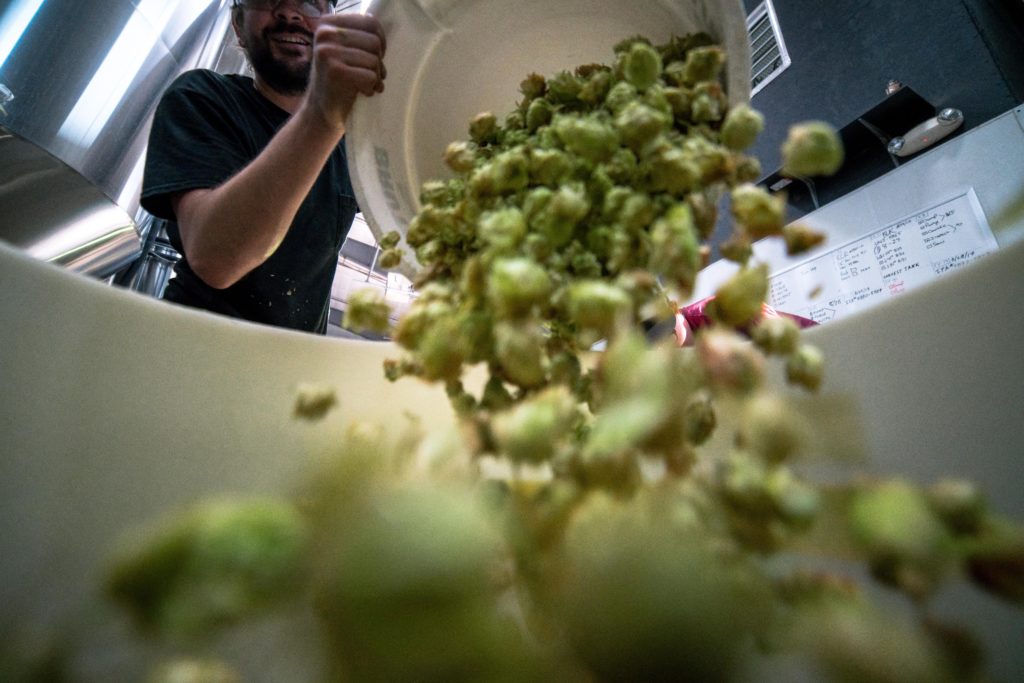Is Vilifying Food Waste The Secret To Limiting Global Warming? New Research Says Yes
4 Mins Read
Reducing food waste is the single best solution to the climate crisis, suggests a recent study. Project Drawdown identified the strategy as having the most tangible potential to reduce emissions. It is not the first time that an adaptation to consumer habits and mindsets has been highlighted as the key to future food security and climate-positive action.
The most recent Intergovernmental Panel on Climate Change (IPCC) report states that creating change at a consumer behaviour level could result in greenhouse gas emission reductions of up to 70 percent. The figure was floated alongside a projected completion date of 2050. Positive habit changes were cited as including walking instead of driving, reducing the heating temperature in domestic buildings and reducing food waste.

Reduce food waste now for food security later
The U.N. Environment Programme’s Food Waste Index highlights that 17 percent of all food available to consumers ends up in the bin. 60 percent of all food waste comes from domestic homes. This represents at least 8923 million tonnes of usable food being wasted and sent to landfill, where it breaks down and releases emissions during the process. Therefore, the importance of making food waste socially unacceptable cannot be overestimated.
With food security becoming a concern for more nations, in the face of global conflicts and rising costs of living, negating waste equals more mouths fed. That it can also actively reduce greenhouse gas emissions makes the issue critical.
New World Resources Institute (WRI) data suggests that making food waste socially unacceptable, through appropriate messaging, will make the problem a priority that more consumers want to solve. In research conducted, it found that when people were told about others making an effort to reduce their own food waste, it raised awareness, encouraged dialogue and incited a change in attitude. The overarching conclusion was that changing societal norms is an effective way to encourage habit evolution.

Adapting behaviour through suggestive expectations
WRI says that shifting social norms will motivate people to change their habits and these can be used to encourage less energy and water use, motivate consumers to choose plant-based foods or nudge people to waste less food. It used an example of the practice in action:
“Hotels, for example, have encouraged guests to reduce water use by including social norms messages on door hangers that mention how other guests reuse their bath towels (rather than send them to be washed every day). The implication is that new guests should do the same.”
The result, in this instance, was a reduction in laundry demand. WRI set out to test the theory specifically in connection to reducing food waste. It conducted two research projects to test whether social norms messaging is effective enough to put a stop to household waste.

What makes consumers choose less waste?
WRI’s studies concluded that messaging alone is not enough to inspire behavioural change. When combined with multi-pronged attacks, however, they can be very effective.
In the first study, 250 Washington households were observed. They were split into three groups. One had no waste intervention, another received standard educational materials about food waste and the third received educational information, plus social norms messages. These took the form of sentences such as “More than three-quarters of DC residents report storing food properly to maximize its shelf life”. The control group wasted 25 percent more food than those subject to relevant information and messaging. Though the social norms statements were not considered effective in reducing food waste, above the standard information, they did alter consumer behaviour in terms of at least trying to meal plan.
The second study looked specifically at the effectiveness of transmitting social norms messages via social media, specifically Facebook. Ads were placed, containing three styles of messages, to identify which were the most successful. Location played a part, with participants responding differently in Germany and the U.K. Overall, dynamic messaging, which talks about what other people are doing to change their behaviour, was considered most encouraging. This has paved the way for future research.
WRI concluded that including social norms messages in standard educational campaigns is a viable plan, as well as being a low-cost, low-risk way to emphasise the topic of food waste.

Feeding people with food waste
As food waste continues to gain traction as an important endeavour, companies are increasingly seeking to tap into the commercial potential that it offers. A number of startups are now producing snacks made from food industry by-products or imperfect ingredients. PurePlus is one of them, taking surplus wonky fruits and veggies and converting them into ‘climate candy’. Its consumer-facing brand, Faves, launched in 2021, debuting its sustainable alternative to Starburst chews. The startup claims that every pack contains one full serving of fruit and veg and prevents countless produce from entering landfills.
Lead photo by Simon Peel at Unsplash.




